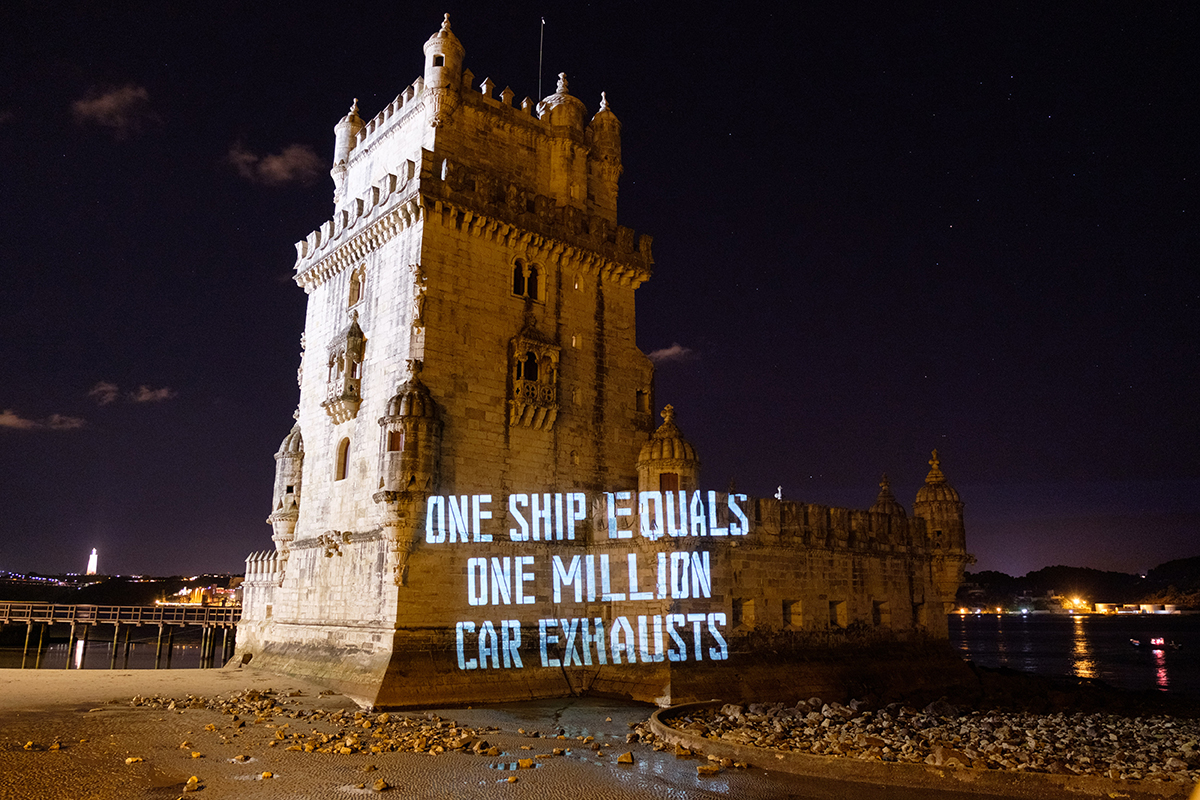Shipping must accelerate its decarbonisation efforts – and now it has the opportunity to do so
13.12.2022

Christiaan De Beukelaer, visiting Fellow at the Institute of Advanced Study, Durham University / Senior Lecturer in Culture & Climate, The University of Melbourne.
Member states of the International Maritime Organisation (IMO), the UN agency that regulates international maritime affairs, are meeting this week to discuss how to accelerate the industry’s climate mitigation efforts.
An initial strategy – agreed in 2018, when the industry’s emissions were roughly the same as Germany’s – targeted a 50% reduction in shipping’s greenhouse gas emissions by 2050 and included a noncommittal aim to phase out emissions in line with the 1.5℃ temperature target of the Paris Climate Agreement.
But climate scientists are now clear that 1.5℃ of warming is the maximum that would allow us to avoid the risk of exceeding dangerous climate tipping points. IMO revisions, which should be in line with this advice are expected in mid-2023, but not all proposals from member states set out a credible pathway to achieve the necessary reductions. This is compounded by a difference of opinion among major industry stakeholders – and various countries and regions – over how the industry should decarbonise.
The fate of the Ocean depends on us all.
Our interventions depend on your support.
Setting the level of ambition
Regional initiatives are embracing higher levels of ambition and could force the IMO to follow suit. For example, all ships transporting goods to and from the EU will be taxed on their emissions under the EU emissions trading scheme from 2024.
The EU, US and several Pacific island states have also proposed a target of “zero greenhouse gas emissions” for shipping by 2050. But only the Marshall Islands and the Solomon Islands detail intermediate targets to achieve this within the rapidly shrinking global carbon budget (the total amount of CO₂ that can be released into the atmosphere without exceeding 1.5℃ of warming). In 2021, the carbon budget allowed for just 4–7 years of emissions at current levels for a 66% chance of keeping global warming below 1.5℃.
The International Chamber of Shipping, a lobby group for shipowners controlling 80% of the global fleet, is instead calling for the industry to reach “net zero carbon emissions” by 2050. This does not include other greenhouse gas emissions from ships and could allow for the use of offsets. Some countries, including Brazil, China, the United Arab Emirates and India have not committed to increasing the level of ambition at all.

Meanwhile, many shipowners have invested in liquified natural gas-powered ships as natural gas emits slightly less CO₂ than traditional shipping fuels. But tackling the climate crisis requires phasing out all fossil fuels, including natural gas.
Further, earlier this year, an investigation uncovered significant amounts of methane escaping from natural gas-powered ships. Methane contributes 80 times more to global warming over 20 years than CO₂.
Uncertainty over mitigation measures
Alongside these regional and industry developments, IMO member states have agreed in principle to adopt a basket of measures to accelerate decarbonisation under international regulations. But political and technical agreement over these measures must be finalised to inform shipping companies’ investment decisions.
One proposal is a carbon price. The Marshall Islands and the Solomon Islands have proposed a price of US$100 (£84) per tonne of CO₂ equivalent emissions.
Accelerating the roll-out of non-fossil fuels, such as hydrogen and ammonia, is also necessary. But their production can create substantial emissions. Agreement is needed to determine whether a fuel’s emissions should only be considered once the fuel is aboard a ship, or whether its full lifecycle emissions should be taken into account.
Even then, alternative fuels are not yet being developed at the required scale. They depend on access to renewable energy, yet the industry’s future demand for fuel is predicted to equal the entire current global production of renewables. Producing the energy required to develop emerging fuels will necessitate massive investment in renewable energy infrastructure.
The safety of some emerging fuels is also dubious. Ammonia, for example, is highly toxic to both humans and marine life.
Wind-assisted propulsion mechanisms and on-board carbon capture technologieshave also been proposed. But while wind propulsion is already in operation on some ships, as discussed in my forthcoming book Trade Winds: A Voyage to a Sustainable Future for Shipping, the promise of on-board carbon capture remains unproven.
Leaving no one behind
The IMO uses the terms “just” and “equitable” in discussions around shipping’s energy transition. But there is currently no consensus over how to define these terms.
The Maritime Just Transition taskforce, which brings together transport unions, a shipping lobby group, and businesses, alongside the International Labour Organisation and the International Maritime Organisation, aims to support maritime workers through the transition by providing the training necessary to work with emerging technologies.
But the taskforce makes no promises to deliver a just transition beyond this.
Remote islands and landlocked developing countries pay disproportionately high prices for cargo transport. Due to decarbonisation requirements, the UN expects these costs to rise further.
One such country, the Marshall Islands, insists that shipping’s energy transition be fair and equitable in relation to both mitigation and climate impacts. But the current lack of commitment and clarity over how to enact such a transition risks isolating developing states – who are among the world’s most climate vulnerable – from maintaining global maritime transport links. This would make it more difficult to respond to climate impacts and hamper their ability to ensure a liveable future for their citizens.
The IMO has the opportunity to accelerate its decarbonisation efforts this month. Agreeing on an effective strategy to curb the industry’s emissions is thus urgent. But the outcome at the IMO will be heavily influenced by how much external scrutiny there is. Look up who your country representative is at the IMO and ask how ambitious they’re going to be this month.
Original article here
Photos: Featured, Crispin Hughes, illumination of Torre de Bélem, João Daniel Pereira, below ‘on a highway to hell’ Felix Armstrong.
The fate of the Ocean depends on us all.
We’ll let you know what we’re doing to help.
